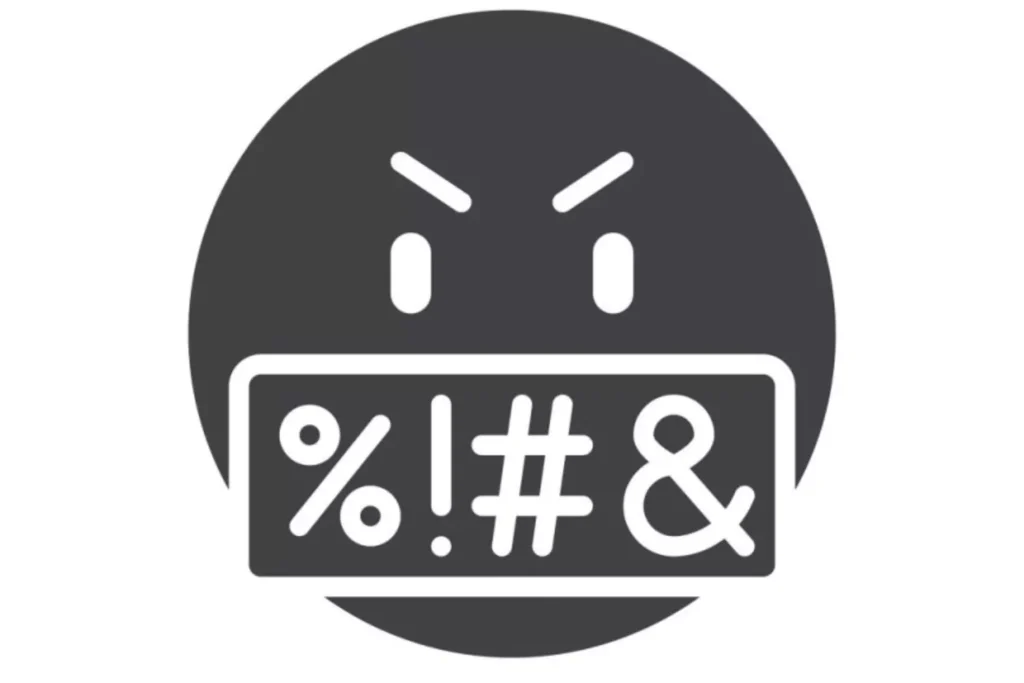A couple of weeks ago, I got caught in the middle of a debate I didn’t expect. During an interview with a potential client, the client said something that didn’t get my attention, but it caught everyone else off guard. She used choice words to explain that she puts 100 percent behind everything she does; she doesn’t do anything halfway.
Because I work at a Christian nonprofit, the words she chose sparked a bit of controversy. I didn’t find her words offensive at all, but others in the room thought they were inappropriate. On the swear word spectrum, in their minds, it was closer to the “sinful” end than the “holy” end.
This made me wonder, Are younger Christians like me more lenient with foul language and swearing?
Swearing out loud
I try my best not to swear out loud.
Once when I was younger, I remember sitting at the dinner table and using words I’d heard my friends say.
“What did you just say?” my dad asked while my mom looked at me in horror. Being the ignorant child I was, I repeated it loudly and clearly a second time. My parents swiftly corrected me and dismissed me from the dinner table without dessert.
There were other times I learned swear words because my mom accidentally let them slip in anger. She quickly told my brother and me, “Never say that. Mommy should never have said that.”
And then I went to high school.
I heard it all. Every combination imaginable. In fact, using the F-word as an adjective wasn’t only acceptable, but expected. Everyone was swearing, even my Christian friends. Especially my Christian friends, in fact.
Despite the high school crowd, my parents led by example and reinforced that swearing is never acceptable, so those words never became part of my vocabulary. But I’ve been around a fair share of Christians who swear out loud, and it’s never bothered me.
Maybe it should though.
Swearing in my head
On several occasions, it has amazed my friends that I don’t swear. But I have to admit I swear more often than I’d like — just nobody hears it.
I imagine I’m not alone.
Almost every night on my drive home from work, some other driver does something careless and I use choice words — in my head — to express my frustration. They’re four letters long.
That’s why I find it difficult to tell my Christian friends to stop swearing around me. I don’t have room to talk or get upset. I’d be pointing out the sliver in their eye when I’ve got a giant log in my own.
I could benefit from friends calling me out about my swearing, but how could they hold me accountable when I don’t express my sinful language for others to hear it?
Clean and unclean
After the situation with our potential client, I had to admit that her language didn’t bother me because I use that expression myself. And I’d never thought twice about it. One of the older Christians who was upset admitted that she uses that expression from time to time too. So I was confused why it was appropriate sometimes and inappropriate at others.
Countless Bible verses spell out that Christians should watch their words (Matthew 12:36–37; Colossians 3:8; Ephesians 4:29; James 3:10). Just like the early church fought over what foods were clean and unclean to eat, I feel like there’s a rising debate between generations about what expressions are clean and unclean to speak. Younger Christians don’t take offense at certain words and expressions like older Christians tend to. So who gets to decide what language is clean and unclean?
Words off limits — it’s bigger than that
It’s tempting to take the same stance as our culture and justify profanity and swearing because they’re just words, and the meanings and usage of words change all the time.
Today, people utter profane words all the time that aren’t intended to be obscene, inappropriate or offensive. I’ve worked at enough loading docks, restaurants and construction sites to know some people naturally pepper their speech with four-letter words. To them, it’s not swearing — it’s just how they communicate. They seem harmless to me and to many other people, but they’re not.
Words are powerful, and we should take them seriously. As Christians, we believe that God has revealed himself through words and ultimately saved us through the Word made flesh, Jesus (John 1:14).
So as a Christian, I hold to a different standard. The Apostle Paul says my speech should always be gracious and seasoned with salt (Colossians 4:6), not peppered with profanity. Paul’s point is that my speech directly impacts my witness to outsiders. To be a positive influence in the world around me, my speech must be holy. And holy speech isn’t simply clean speech devoid of cuss words; it’s speech that sets me apart.
I’m part of “a royal priesthood, a holy nation, a people for [Christ’s] own possession,” and I should proclaim, “the excellencies of him who called [me] out of darkness” (1 Peter 2:9).
I need to use my words to build up others and language that reflects my royal position in Christ. This is an area where I wouldn’t feel out of place encouraging Christian friends. Iron sharpens iron (Proverbs 27:17), and by encouraging holy speech, I would also open myself up to being held accountable for my own language.
A different tack
As divisive language and constant quarreling surround us more and more, we could all benefit from the advice Paul gave to Titus to speak evil of no one, avoid quarreling, be gentle and show courtesy to all (Titus 3:2).
It’s not just the words we don’t use that set us apart as believers. It’s also the words we do use that can have the greatest influence for the glory of God in the world around us.
Copyright 2019 Marc Aker. All rights reserved.










